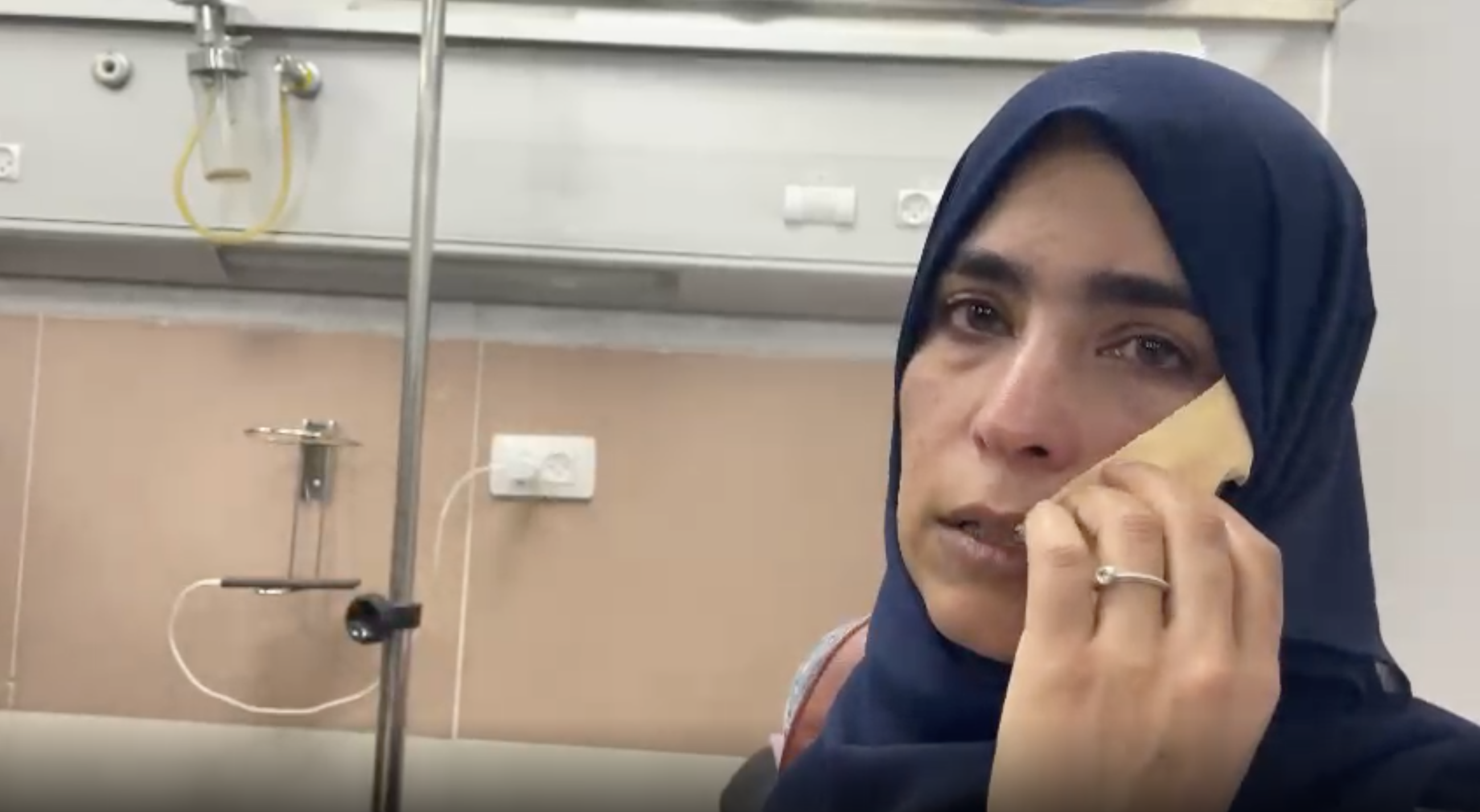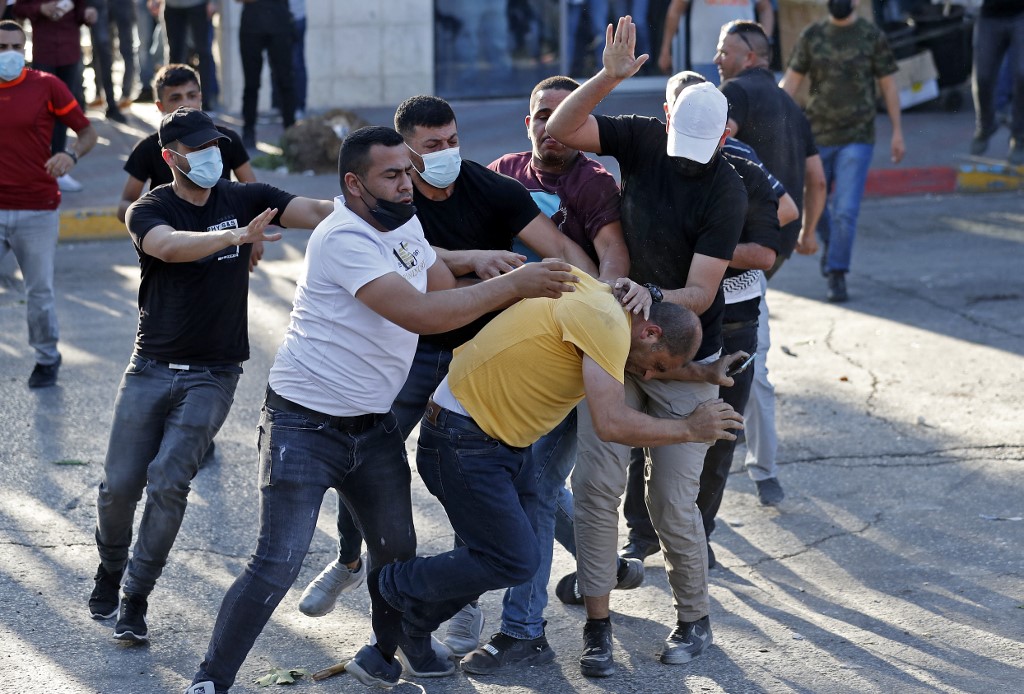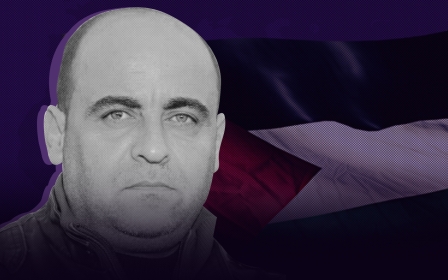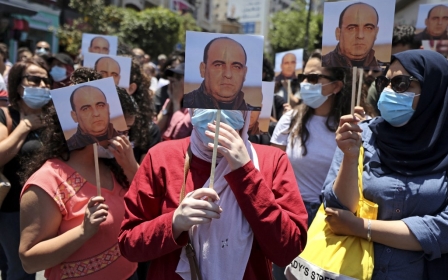PA officers hit MEE journalist in face with gas canister during protest crackdown

Palestine Authority security officers hit Middle East Eye journalist Shatha Hammad in the face with a gas canister as they violently dispersed protests in Ramallah on Saturday. She has been hospitalised.
Hammad was covering a demonstration in Ramallah against the death of activist Nizar Banat, who died on Thursday while in the custody of the Palestinian Authority (PA).
A violent crackdown by PA security officers on the Saturday march left several people injured.
Hammad, an award-winning reporter based in Ramallah, was hit directly in the face with a gas canister.
“It was deliberate,” Hammad said. “I was standing with all the journalists in the designated area. They targeted me directly. It was obvious that we were all journalists.”
New MEE newsletter: Jerusalem Dispatch
Sign up to get the latest insights and analysis on Israel-Palestine, alongside Turkey Unpacked and other MEE newsletters
Hammad was wounded in the face as a result of the hit and required medical attention at a nearby hospital.
She said that before she was hit with the gas canister, officers had been throwing stones at her.
Three other journalists were injured in the crackdown, including Fayhaa Khanfar and Saja al-Elmi, who were assaulted and beaten by security officers. Their mobile phones were also confiscated.
The Palestinian journalists' union condemned the attacks by security forces against journalists covering the protest.
"The targeting of journalists by security men is a new, grave development in the onslaught on freedom of expression and the media," the union said in a statement, according to Reuters.
'The targeting of journalists by security men is a new, grave development in the onslaught on freedom of expression and the media'
- Palestinian journalists' union
Thousands of Palestinians rallied on Saturday for the second day to denounce the death of Banat, who had been a fierce critic of the PA and President Mahmoud Abbas.
Waving Palestinian flags and photos of the slain activist, protesters chanted against the suppression of PA police and called for Abbas to resign,while accusing the PA of killing Banat.
Similar protests were held in Hebron and al-Bireh.
Protesters in Ramallah were marching towards the Mukataa, a guarded compound housing several government buildings, including the president’s office.
Police had earlier closed off the intersection leading to the Mukataa and forced shops in the area to close.
Plain-clothed security officers spread out among protesters as they made their way from the centre of the city.
As protesters approached the intersection, security forces launched a heavy barrage of tear gas and sound grenades into the crowd and attacked protesters and several journalists.
One video from the protest showed security forces in plain clothes dragging a protester across the road, as they simultaneously beat him.
Banat’s death has shocked and angered Palestinians and tens of thousands marched at his funeral on Friday.
In videos he posted on social media, he repeatedly criticised the PA for corruption and its security coordination with the Israeli military in the occupied West Bank.
At least 25 officers had detained Banat after raiding his home in the town of Dura, in the Hebron governorate, around 3:30am on Thursday. He was declared dead shortly afterwards.
Banat’s family has accused PA security forces of killing him after beating him and taking him away while semi-conscious.
On Thursday, the Ramallah-based Independent Commission for Human Rights revealed that initial autopsy results showed that the activist was severely beaten, and evidence of bruises and fractures were visible across his body.
Samir Abu Zarzour, the doctor who carried out the autopsy, said injuries on Banat's body indicated he had been beaten on the head, chest, neck, legs and hands, with less than an hour elapsing between his arrest and his death.
Faten Elwan contributed to this report.
This article is available in French on Middle East Eye French edition.
Middle East Eye delivers independent and unrivalled coverage and analysis of the Middle East, North Africa and beyond. To learn more about republishing this content and the associated fees, please fill out this form. More about MEE can be found here.




